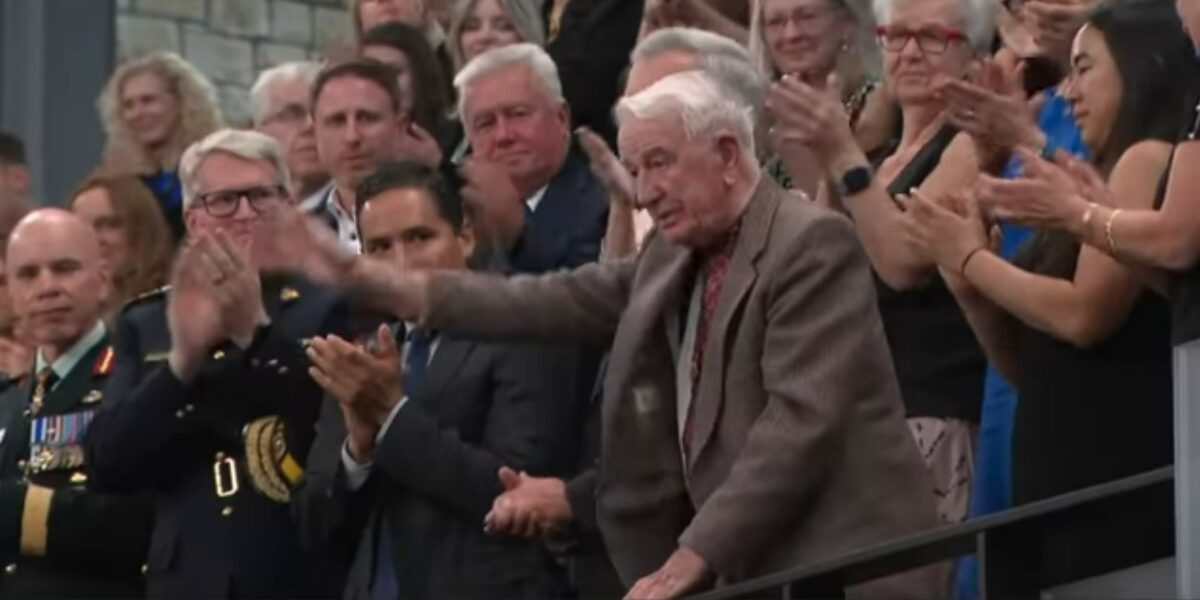I don’t believe much in learning from history in order not to repeat it. If that worked, there’d be a lot less genocide, inequality and spin. Plus, it’s rarely clear what those lessons are.
Take the classic case: Hitler shouldn’t have been appeased at Munich. Yet there’s been debate for decades on whether it actually gave Britain a year to rearm and be truly ready for a war that was inevitable.
It doesn’t mean history can’t have more modest uses, like sensitizing you to impending s—storms. I mean, a thin knowledge of the Second World War might have at least piqued the curiosity of our MPs as they moronically stood to cheer an ex-collaborator with Nazi forces in Ukraine.
Did no one turn to a caucus mate and say, Er, but if he was fighting Russians at that point, doesn’t it mean he almost certainly was collaborating with the occupying Germans? It could’ve at least slowed their rise, dampened their ardour and salvaged a little dignity.
Justin Trudeau has read lots. He’s not an ignoramus, though his early warning systems do seem to have gaps. Afterwards, in an apology, he said “we” applauded but were “unaware of the context.” What context — the Second World War?
What about Chrystia Freeland, his second-in-command, an interesting case. Her grandfather migrated here from Ukraine but during the war, he was editor of a Nazi-run, antisemitic journal that had been expropriated from its Jewish owner. When asked about it, she’s avoided direct response, classing it as Russian disinformation. (A bit like George Bush who, asked about avoiding action in the Vietnam War, said he found it interesting that the question arose during a run for president). Journalists tended to be sympathetic; he was her grampa.
But behind the fixed smile, was she vibrating with awful possibilities? Did she wonder how it happened and hope it would just pass, knowing it wouldn’t?
And what of Zelenskyy himself, Ukraine’s heroic (Jewish, former comedian) leader? His mind must’ve been going like a berserk computer. He surely wished he’d skipped the Ottawa leg of this trip as he watched the mishigas unfold.
Yet nutty as the image is, I don’t think it’s just a “gaffe” by a simpleton Speaker of the House, who kept it a secret and thought everyone would love it when he sprung it on them — which they did, briefly. What it also reflects is the curtailed information we tend to get, especially during wartime.
The 1930s brought a horrific famine to Ukraine, widely considered to be deliberate Soviet policy, along with the ugliest phase of Stalinism, which is saying a lot. This led to the diabolical “enemy of my enemy is my friend” mindset, that underlay some of the support in Ukraine for Nazi forces.
Ukraine is still dealing with these complexities. They occasionally get coverage in Western media but mostly, in the vortex of war, don’t. The general tenor is: these forces aren’t profoundly menacing but they must be handled with care. As someone said, de-nazification is an issue in Ukraine, but it also is in Russia. So keeping a lid on it is understandably tempting, till the lid blows off.
Is that clear? Of course not.
Better Questions
My friend for 50 years, John Saul (not the same as John Ralston Saul), died last weekend, a year after his incomparable wife, Pat. He wrote and taught on liberation travails and triumphs in southern Africa, and campaigned in many of those, too.
Among what I’ll miss, along with his lightning wit and vast range — jazz, spy novels, baseball, basketball, etc. — is a book we long intended to write but didn’t, called Better Questions, about Marxism. Its gist was that Karl Marx didn’t get all the answers right but he asked better questions than almost anyone.
I thought of listing some examples but it’s really all in that title. Answers are temporary; we know they’ll soon pass; it’s questions that endure and guide us. Deep condolences to his splendid adult children, Nick and Joanne.
This column originally appeared in the Toronto Star.



